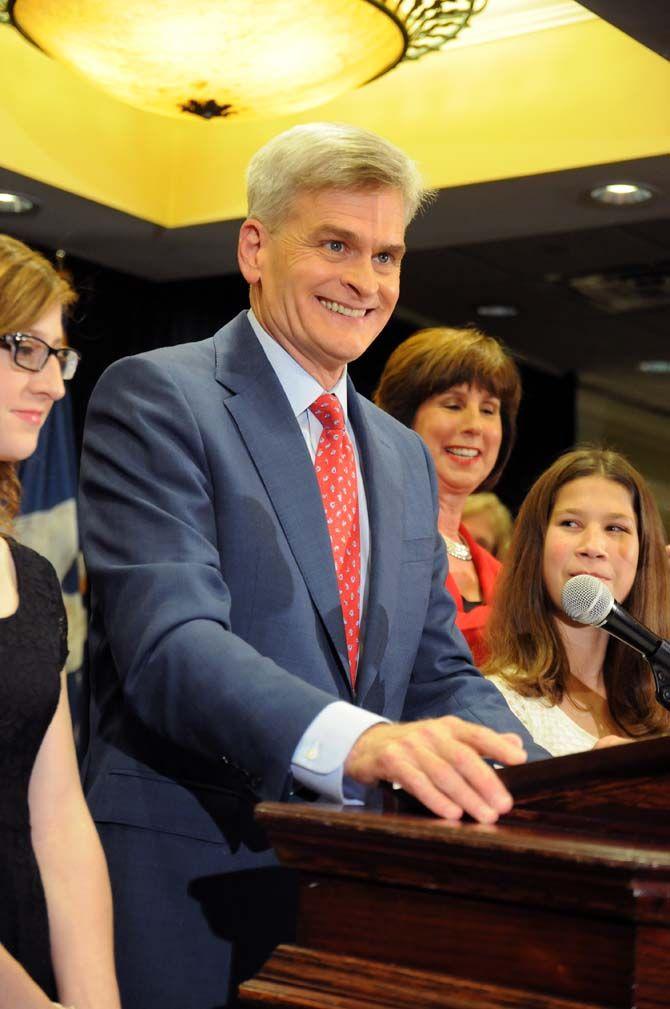Election night has come and gone, and the Republican Party stands as the victor with its shiny new Senate majority. Democrats didn’t just get beaten; in the words of Sen. Joe Manchin, D-W.Va., it was “a real ass-whuppin,” which is totally on the mark. It was a bloodbath of epic proportions.
Despite the tremendous losses for Democrats, the biggest losers on election night were the pollsters and pundits who tried predicting the results.
In the days leading up to the vote, there was a debate as to whether or not it would be a “wave election” in favor of the Republicans, or an ideological shift in the electorate toward what Republicans were offering.
A large number of the talking heads concluded that it would be a Republican victory, but certainly not a wave. If they were to gain the majority it would be by the skin of their teeth. There were even those predicting the Democrats would retain control of the Senate, but you can hardly expect Debbie Wasserman Schultz or Chris Matthews to be objective when it comes to predicting elections.
The GOP surpassed all expectations and captured seven seats in the senate, with a probable eighth if Rep. Bill Cassidy, R-La., can pull off a win in the runoff. If he can bring in even a fraction of Col. Rob Maness’ voters, he’ll do just that. The question will be whether they are angry enough at the results to abstain from turning out on Dec. 6.
The pundits were so keen on handicapping the GOP’s chances on Tuesday because they, like the rest of us, were looking at polls that were appallingly off the mark.
As reported by Politico, most poll averages greatly underestimated Republican candidates, often by a factor of five or more points. In Louisiana’s Senate race, average polling showed Cassidy earning roughly 34.5 percent of the vote. What he actually got was around 40.9 percent — that’s 6.4 points off.
Even at the Paul Dietzel campaign, it pains me to say that most polls pointed to a much closer race between Dietzel and Garret Graves, in some cases within one or two points. However, after a monthlong media blitz and a late-game attack ad, Graves ended up with roughly double Dietzel’s votes.
Being a few points off is forgivable — even more so as the margin of error increases from poll to poll. This, however, was damn near flooring.
If any other person performed as poorly at their job as the pollsters did, they would be fired immediately and ostracized from their fields. One can’t help but think of the nearly overnight disappearance of pollster and former Clinton advisor Dick Morris, who inaccurately predicted a 325 electoral vote landslide for Mitt Romney in 2012.
The only prediction that any of the talking heads or pollsters got on the mark was former Sen. Scott Brown losing to Jeanne Shaheen in New Hampshire, which surprised no one because Brown isn’t even a New Hampshire native.
When the 2016 election cycle comes around, we need to take anything the pundits and pollsters have to say with a grain — or in some cases, a pile — of salt. The last two cycles have shown that they are not as adept at gauging public mood and voter turnout as they would like us to think.
Ryan McGehee is a 21-year-old political science, international studies and history senior from Zachary, Louisiana. You can reach him on Twitter @JRyanMcGehee.
Opinion: Pollsters, pundits appallingly off-target in recent election
November 6, 2014
Bill Cassidy runs off with Mary Landrieu for congress in the poll results Tuesday, November 4, 2014 and hopes for a victory December 6, 2014.





